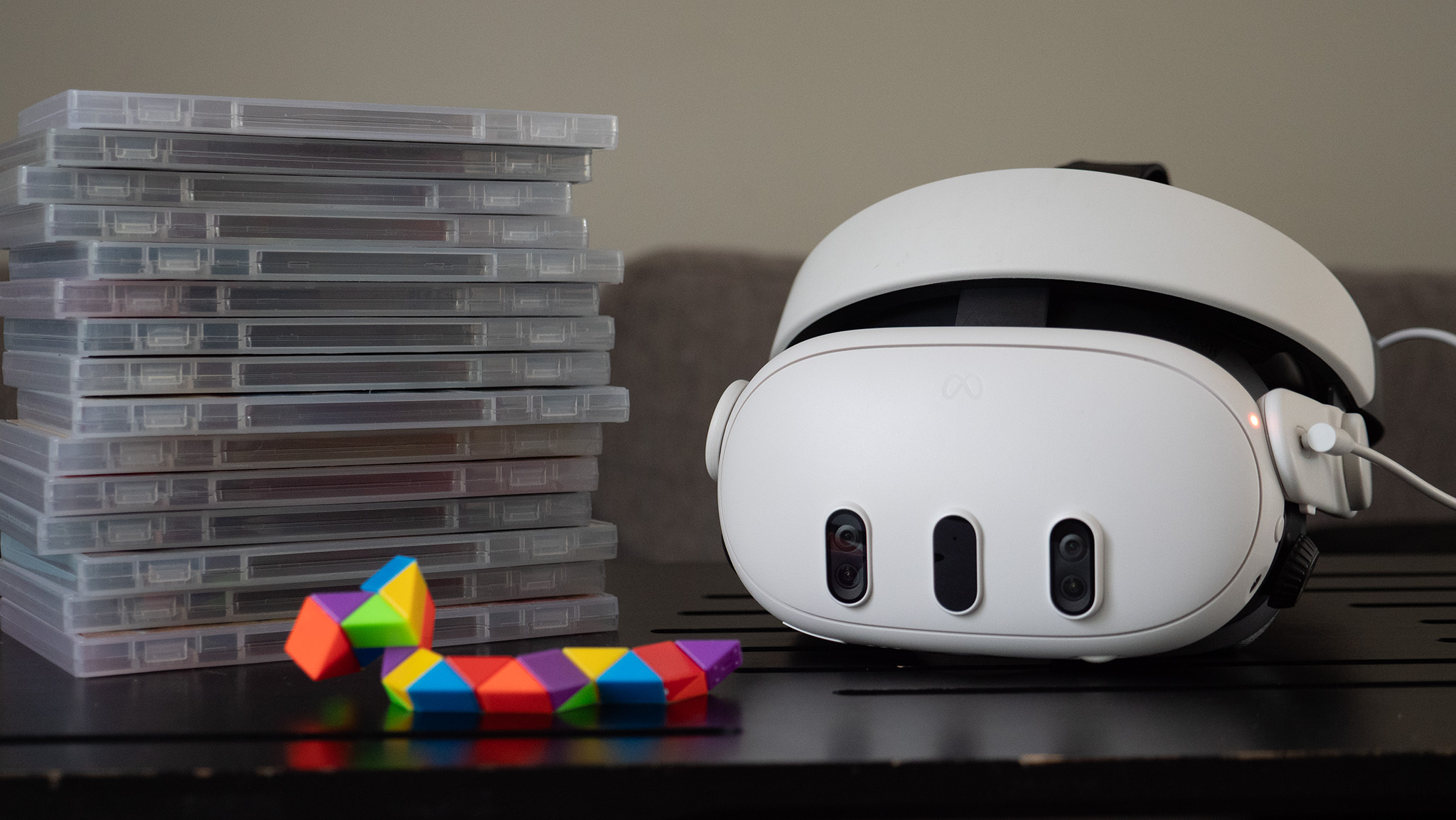Samsung Galaxy Watch 5 Pro vs. Apple Watch Series 8
Samsung's 3-day battery life and more durable design matched up against Apple's superior storage and unique features.
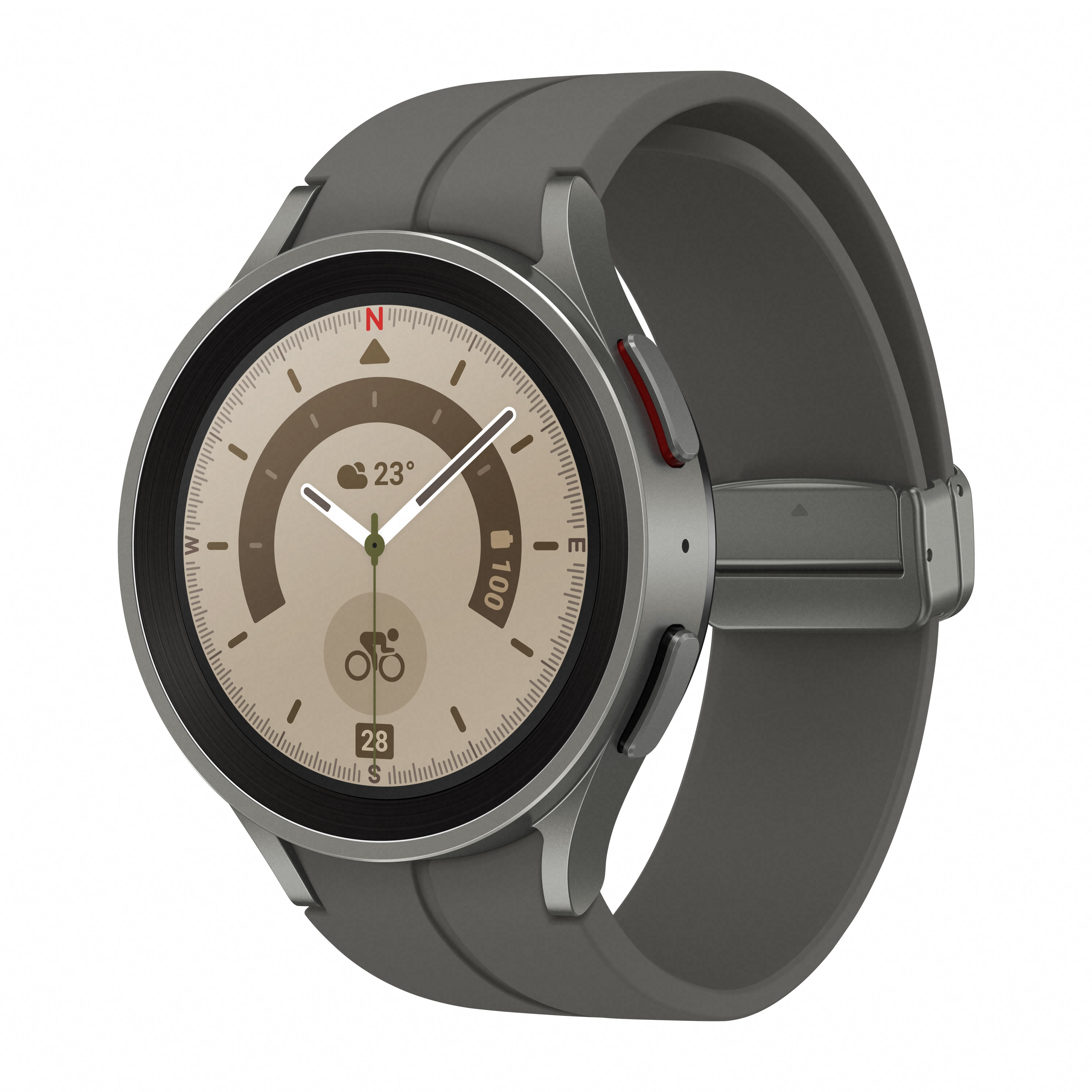
The Galaxy Watch 5 Pro gives you high-end materials, a workhorse of a battery, and the promise of years of software support. It's heavier and thicker than you might like, but it's an Android watch with the speedy performance you need for your favorite Google apps and the near guarantee that it'll never die on you at an inconvenient time.
For
- 3-day battery life
- More durable materials
- Google apps suite
- Offline GPX maps
- BIA sensor
Against
- No Fitness+ equivalent
- Half the storage
- Inactive temperature sensor
- Some Samsung phone-only features
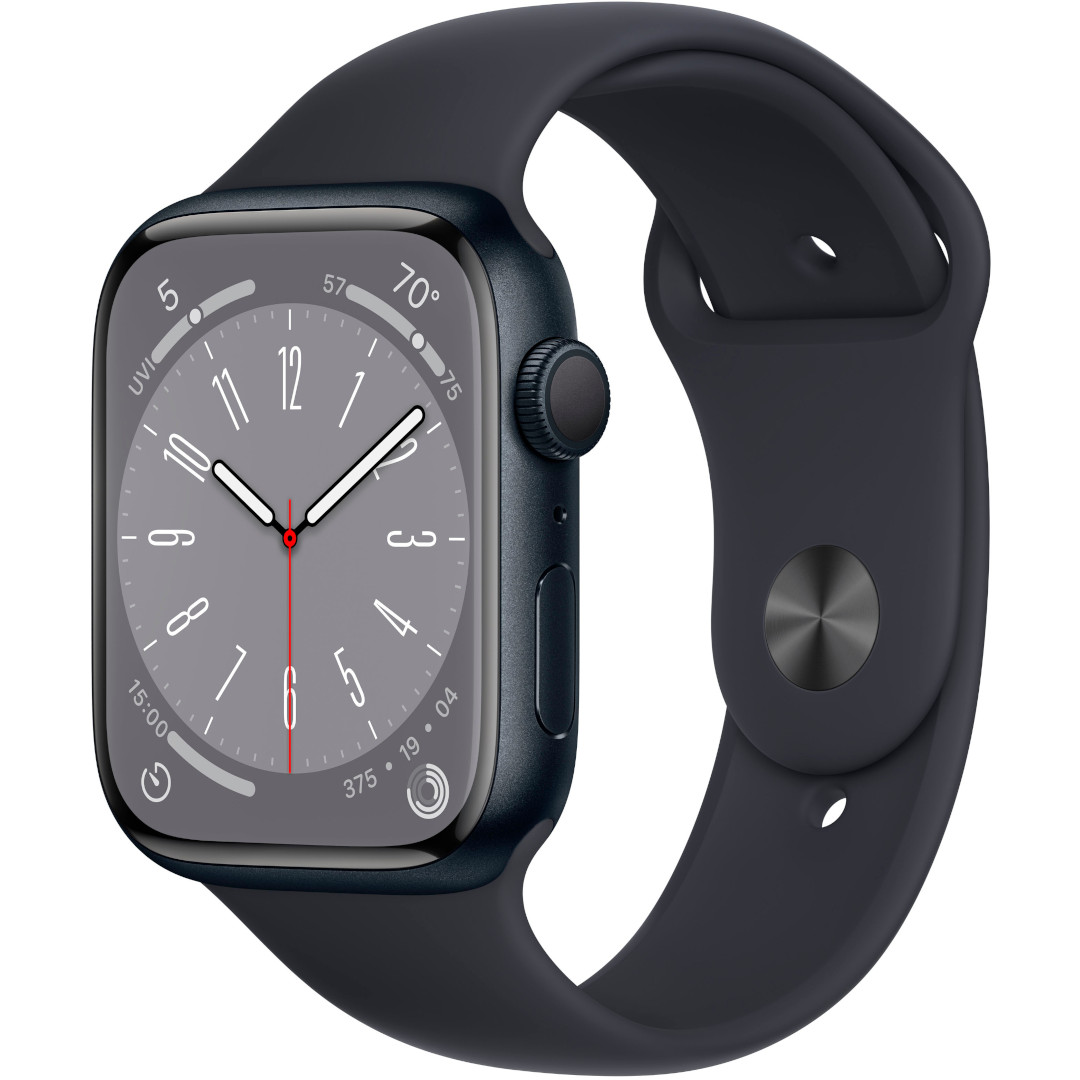
If you've bought an Apple Watch before, you know exactly what to expect with the Series 8. Aside from a few new features like a temperature sensor and crash detection, Apple's new watch is a carbon copy of the Series 7. But aside from the poor battery life, that's not a bad thing! We still appreciate its thin frame and stylish design compared to the bulky Pro.
For
- Attractive thin-bezel display
- Fluid performance
- Plenty of size, material, & band options
- Crash/fall detection and emergency SOS
- Light, thin design
Against
- iOS-only
- Less than one-day battery life
- Less durable materials
When the Apple Watch Ultra launched, everyone naturally compared it to the Galaxy Watch 5 Pro because they were the two "flagship" smartwatches of each respective lineup. But in actuality, it's a bit unfair to compare the ultra-expensive Ultra to the Pro, which was never actually designed as a rugged fitness smartwatch in the same way.
As a premium Android watch designed for everyday people rather than athletes, the Watch 5 Pro's closest equivalent is actually the Apple Watch Series 8 since it costs just $20 more than the 45mm model.
So while we've already broken down the Galaxy Watch 5 Pro vs. Apple Watch Ultra and Galaxy Watch 5 vs. Apple Watch Series 8, both of those comparisons were arguably mismatches, since the Galaxy Watch 5 might be better likened to the Apple Watch SE given their similar prices. If we compare the Galaxy Watch 5 Pro vs. Apple Watch Series 8 instead, it's arguably a much more competitive breakdown.
Samsung Galaxy Watch 5 Pro vs. Apple Watch Series 8: Design and display
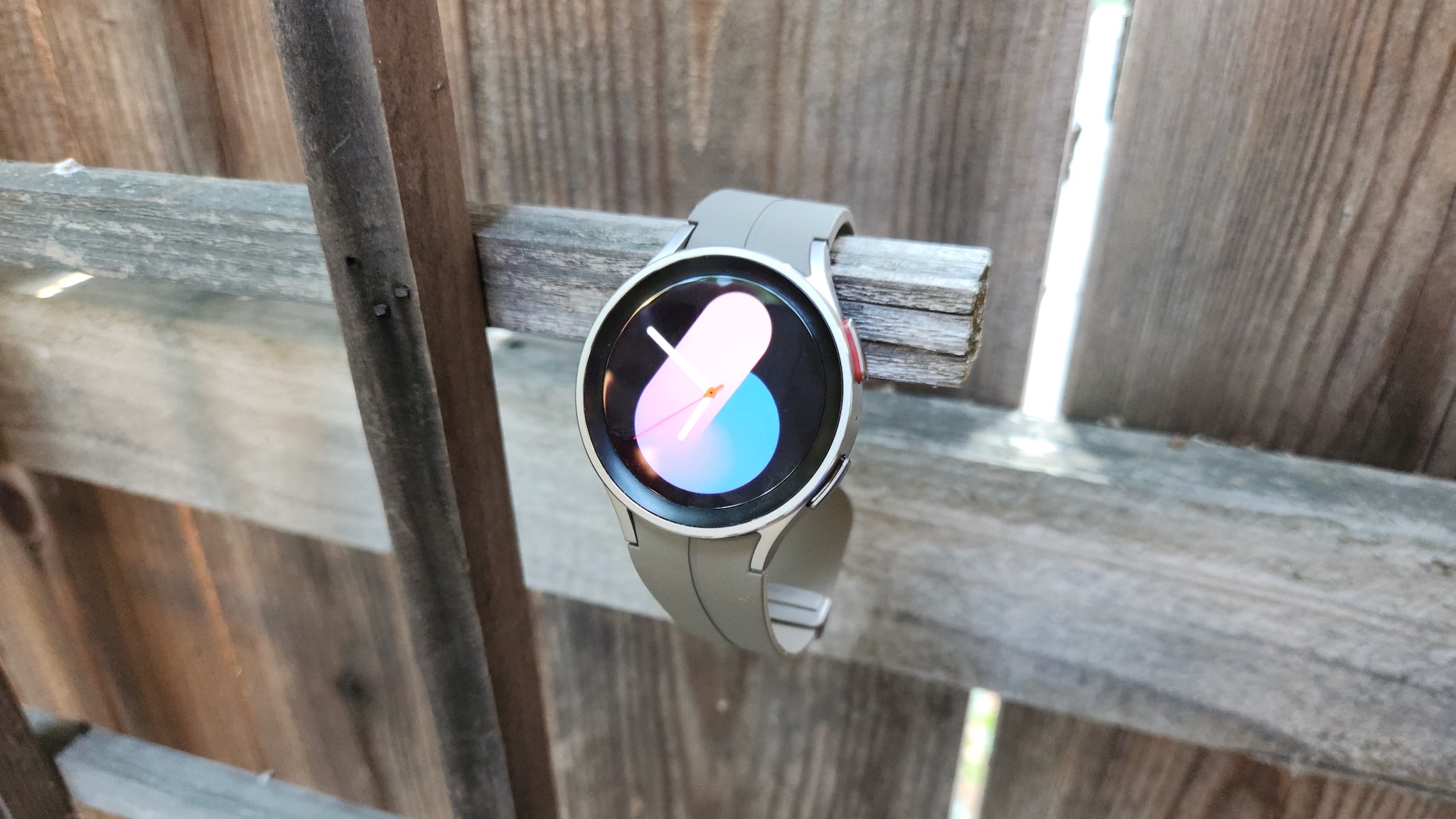
For the purposes of this discussion, I'll focus on the larger Apple Watch Series 8 45mm, since anyone considering the Galaxy Watch 5 Pro likely wants a spacious display. But you can choose the 41mm model if you prefer something lighter, while with the Pro you have to accept its heavy weight in exchange for its massive battery.
The Samsung Galaxy Watch 5 Pro has a 1.4-inch Sapphire Glass display at 321 pixels per inch (PPI), just five PPI less than both Series 8 displays, and at the same 1,000 nits of brightness. Apple only uses Sapphire Glass on its stainless steel watches, which cost $700 and up; so you're stuck with Ion-X glass, which is more equivalent to Gorilla Glass in scratch/crack protection.
Also on that note, the Apple Watch Series 8 uses aluminum while the Galaxy Watch 5 Pro has titanium, a more high-quality and durable material. In addition, Samsung gave the Pro MIL-STD-810H-rated protection, with a raised bezel that ensures the watch display is less likely to get damaged if you fall to the ground. Apple made its Series 8 dust- and water-resistant, yet it's certainly not as well-protected as the Pro or the Apple Watch Ultra.
While the Series 8 displays have tiny bezels and a tall rectangular shape, the Galaxy Watch 5 Pro has a significant bezel that serves as a capacitive touch bezel, meaning it lets you spin your fingertip around the edge to navigate through menus. It's speedier than turning the Apple Watch's Digital Crown, but also more finicky and less precise than a physical dial, meaning it takes a bit of practice to use.
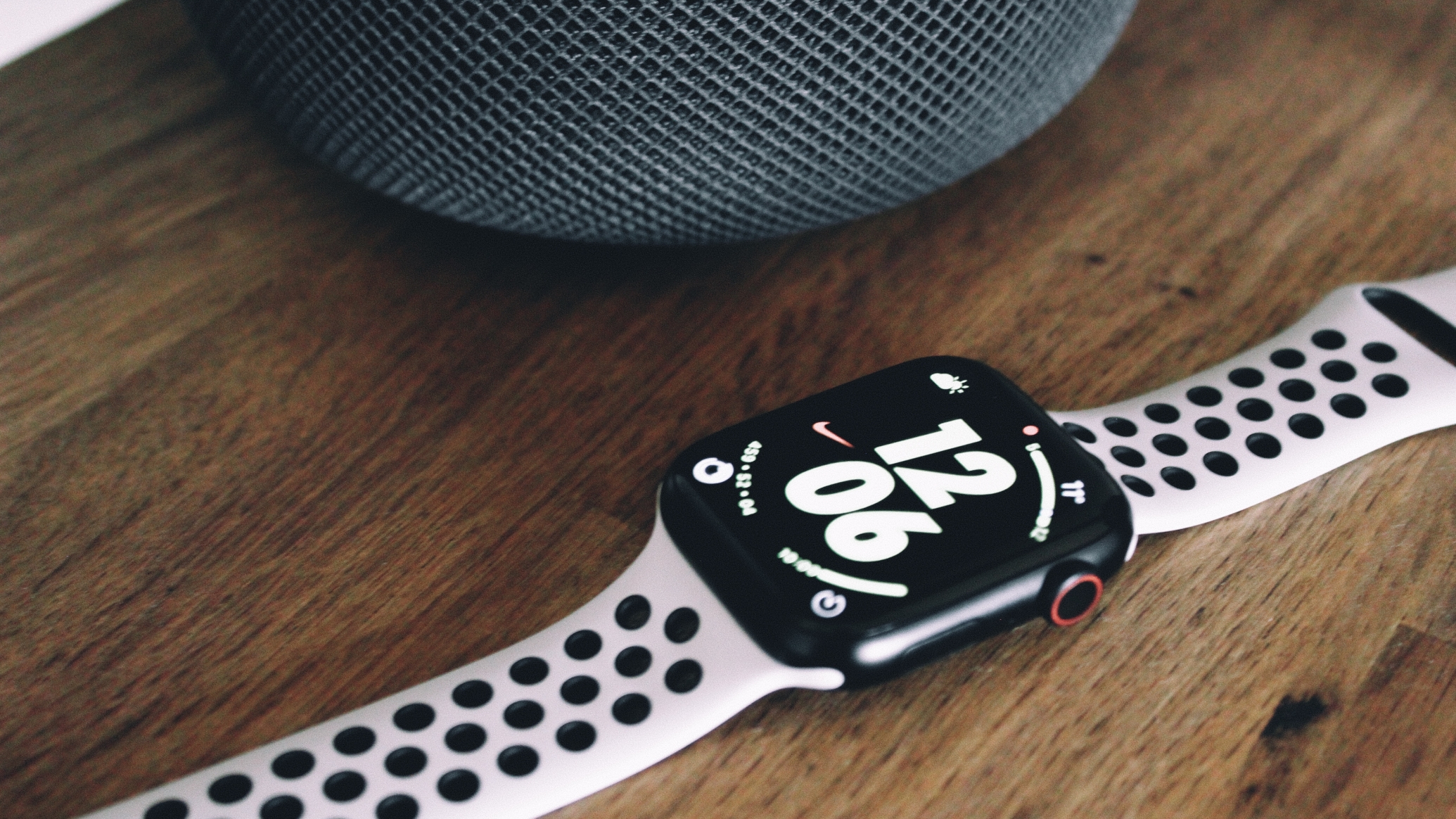
Having reviewed the Galaxy Watch 5 Pro myself, I found that it "juts out from your wrist" and feels somewhat prohibitively heavy to wear, especially with the default D-Buckle Sport band that adds a ton of weight to it. It's not the most comfortable to wear for sleep tracking at night, and can catch on doorways if you're not careful. My recommendation would be that you choose your Galaxy Watch 5 Pro bands carefully if you plan to buy it, and lean towards something simple and light.
The benefit of the Apple Watch Series 8 is that it's so narrow: about 4mm skinnier and 8g lighter than the Galaxy Watch 5 Pro (not counting the band). That makes it both more stylish and more comfortable, especially with a lightweight Solo or Sport Loop to further the gap.
As for the Apple Watch Series 8, our colleague Stephen Warwick at iMore praised the "tried and trusted design" that hasn't changed since the Apple Watch Series 7. The digital crown offers "tactile scrolling that makes quick navigation a breeze," and the newly thin-bezeled display "really transforms the user experience, with buttons much easier to press and information much easier to read."
Samsung Galaxy Watch 5 Pro vs. Apple Watch Series 8: Hardware and battery life
| Header Cell - Column 0 | Samsung Galaxy Watch 5 Pro | Apple Watch Series 8 |
|---|---|---|
| Display | 1.4″ Super AMOLED (450x450, 321ppi) | 1.6- (352x430, 326ppi) or 1.8-inch (396x484, 326ppi) Retina LTPO OLED |
| Brightness | Up to 1,000 nits | Up to 1,000 nits |
| Material | Titanium | Aluminum or stainless steel |
| Bands | Ridge-Sport, D-Buckle Sport, Global Goals, Sport, Extreme Sport, Hybrid Leather | Solo Loop, Sport Band, Sport Loop, Nylon, Leather, Stainless Steel |
| Navigation | Touchscreen, two buttons, digital bezel | Touchscreen, one crown, one button |
| Processor | Samsung Exynos W920 w/ 1.5GB | S8 SiP with 64-bit dual-core processor |
| Storage | 16GB | 32GB |
| Battery | 590mAh; Up to 80 hours | 282mAh or 308mAh; Up to 18 hours |
| Wireless charging | Yes (Qi) | Yes (proprietary cable) |
| Sensors | Samsung BioActive Sensor (Optical Heart Rate + Electrical Heart Signal + Bioelectrical Impedance Analysis), Temperature Sensor, Accelerometer, Barometer, Gyro Sensor, Geomagnetic Sensor, Light Sensor | Accelerometer, ambient light, barometer/altimeter, compass, ECG, gyroscope, heart rate monitor, pulse oximeter, thermometer |
| Connectivity | Bluetooth 5.2, Wi-Fi 802.11 a/b/g/n 2.4+5GHz, NFC, GPS/Glonass/Beidou/Galileo, LTE (optional) | LTE (optional), GPS, GLONASS, GALILEO, BeiDou, QZSS, Bluetooth 5.3, Wi-Fi, NFC, Ultra wideband |
| Compatibility | Android (Google Assistant or Bixby) | iOS (Siri) |
| Protection | 5ATM, IP68, MIL-STD-810H, Sapphire Glass | IP6X, WR50, crack-resistant crystal |
| Size | 45.4 x 45.4 x 15mm | 41 x 35 x 10.7mm; 45 x 38 x 10.7mm |
| Weight (without band) | 46.5g | 31.9g or 38.8g (aluminum) |
Why buy the heavy Galaxy Watch 5 Pro when the Galaxy Watch 5 offers all of the same features? Aside from the more rugged design, it's because the Pro can last three days per charge even with regular use, continuous heart rate and blood pressure monitoring, and sleep tracking. In our tests, it fell closer to 1.5-2 days with more active use like music streaming, GPS tracking, or always-on display, but that's still miles above what other Wear OS watches can do.
Meanwhile, the Apple Watch Series 8, like so many models before it, has an 18-hour estimate, which iMore described as "not bad, but annoying. Because it can't hit 24 hours, it means anyone who wants to use sleep tracking has the "difficulty of judging when to charge it," since it'll need to be charged more than once per day to make it through the night. And for everyday use, it could still easily die on you after a long and active day, while the Galaxy Watch 5 Pro will keep chugging along with juice to spare.
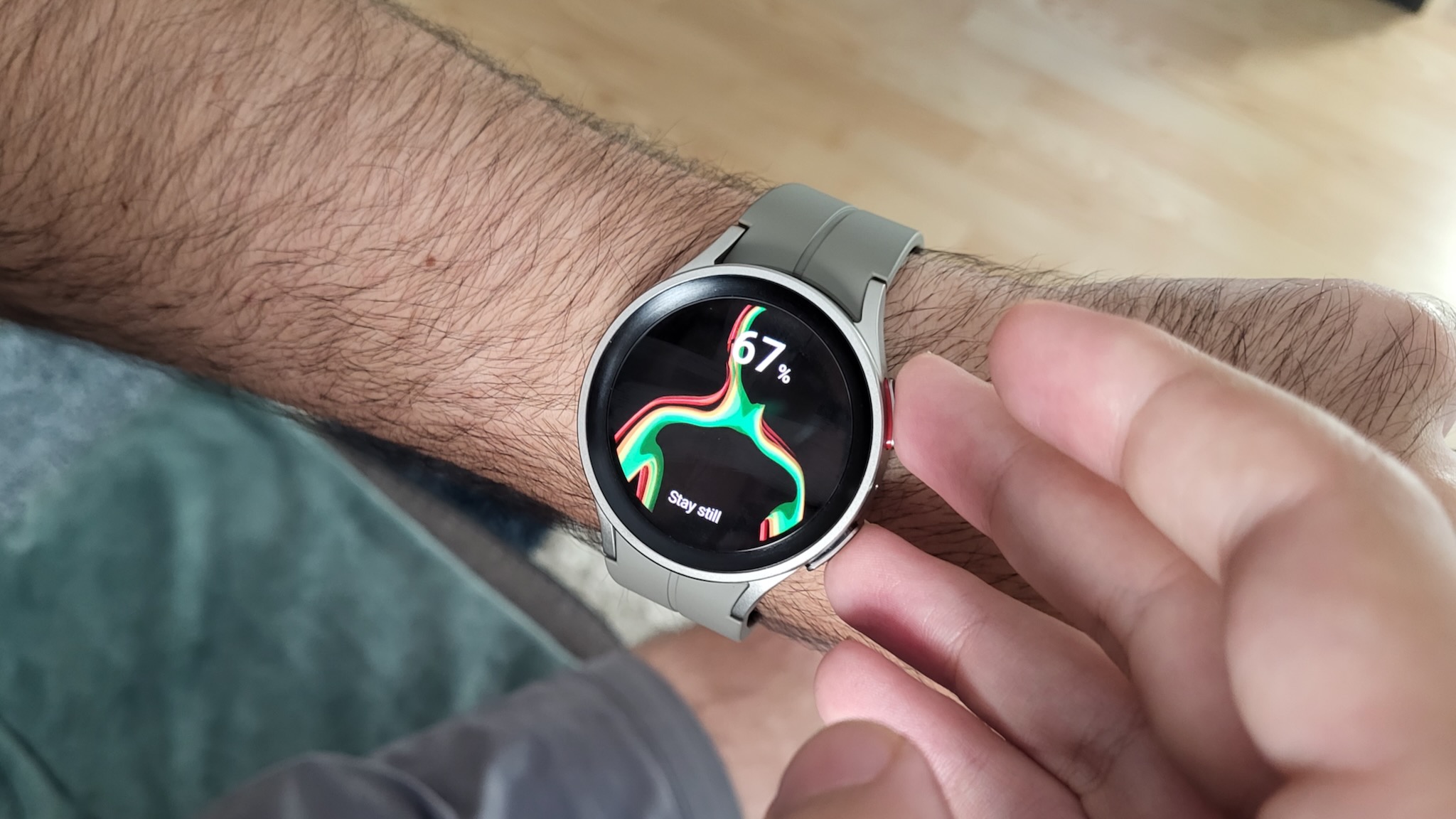
When it comes to health sensors, Samsung should have the undisputed lead but has allowed Apple to catch up. Both watches have heart rate, blood oxygen, and ECG sensors, while Samsung also offers a Bioelectrical Impedance Analysis (or BIA) sensor that detects your skeletal muscle, basal metabolic rate, and body water/ fat percentage. And in some countries, you can take a blood pressure reading, though not in the United States without sideloading. In both cases, you need to actively measure these, rather than have them detected passively.
The newest Galaxy Watch 5 Pro sensor is the body temperature sensor, but Samsung has yet to activate it months after launch. That's where Apple has taken its own advantage: the Series 8 has two sensors, one for skin temperature and one for your surroundings to compare. It mostly activates at night for sleep tracking; as iMore describes it, the sensors measure "shifts in temperature caused by illness and jet lag, but [they] also give users retrospective ovulation estimates to help with family planning and period predictions."
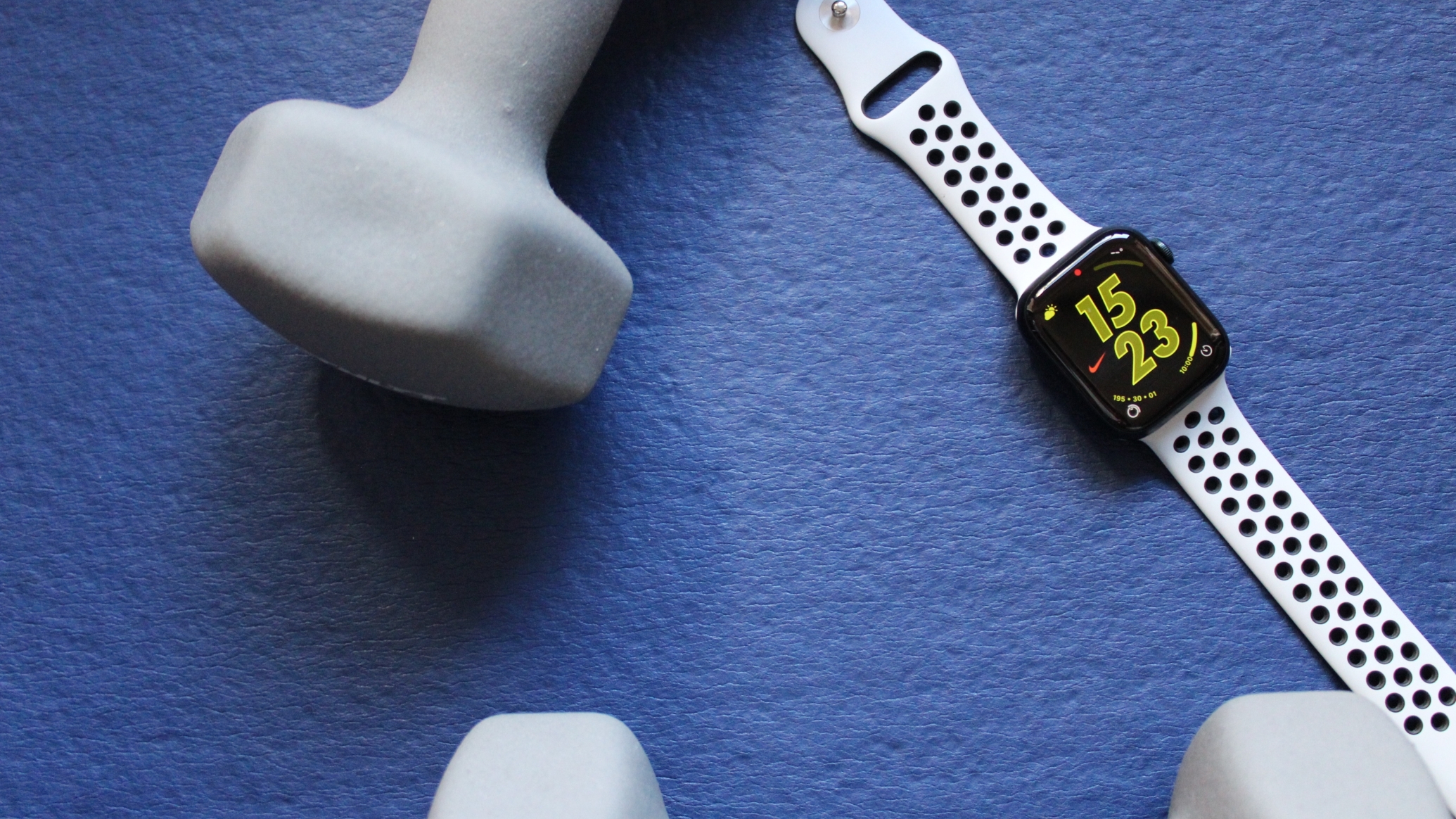
We don't have benchmarks to compare how the two watches perform, but we can say confidently that both offer a lag-free experience. On the Pro, I found the watch has an "immediate response to any tap or swipe," while the Series 8 has a similarly fast and fluid experience.
The main benefit Apple offers is its watch's 32GB of storage, double that of the Galaxy Watch 5 series. In our mind, a Galaxy Watch 5 Pro should've had more storage than the standard model. 16GB just isn't enough for a full array of apps, stored music, and watch face complications in our view, so you have to be a bit more selective with your Samsung watch.
Both watches have speedy Wi-Fi and Bluetooth, though Apple uses the newer Bluetooth 5.3 standard instead of 5.2. Both offer optional LTE for an extra $50. While both have NFC tap-to-pay, only Apple included an ultra-wideband chip, which is mainly for the Find My application but could help the Apple Watch serve as a digital key for your car in the future.
Samsung Galaxy Watch 5 Pro vs. Apple Watch Series 8: Software
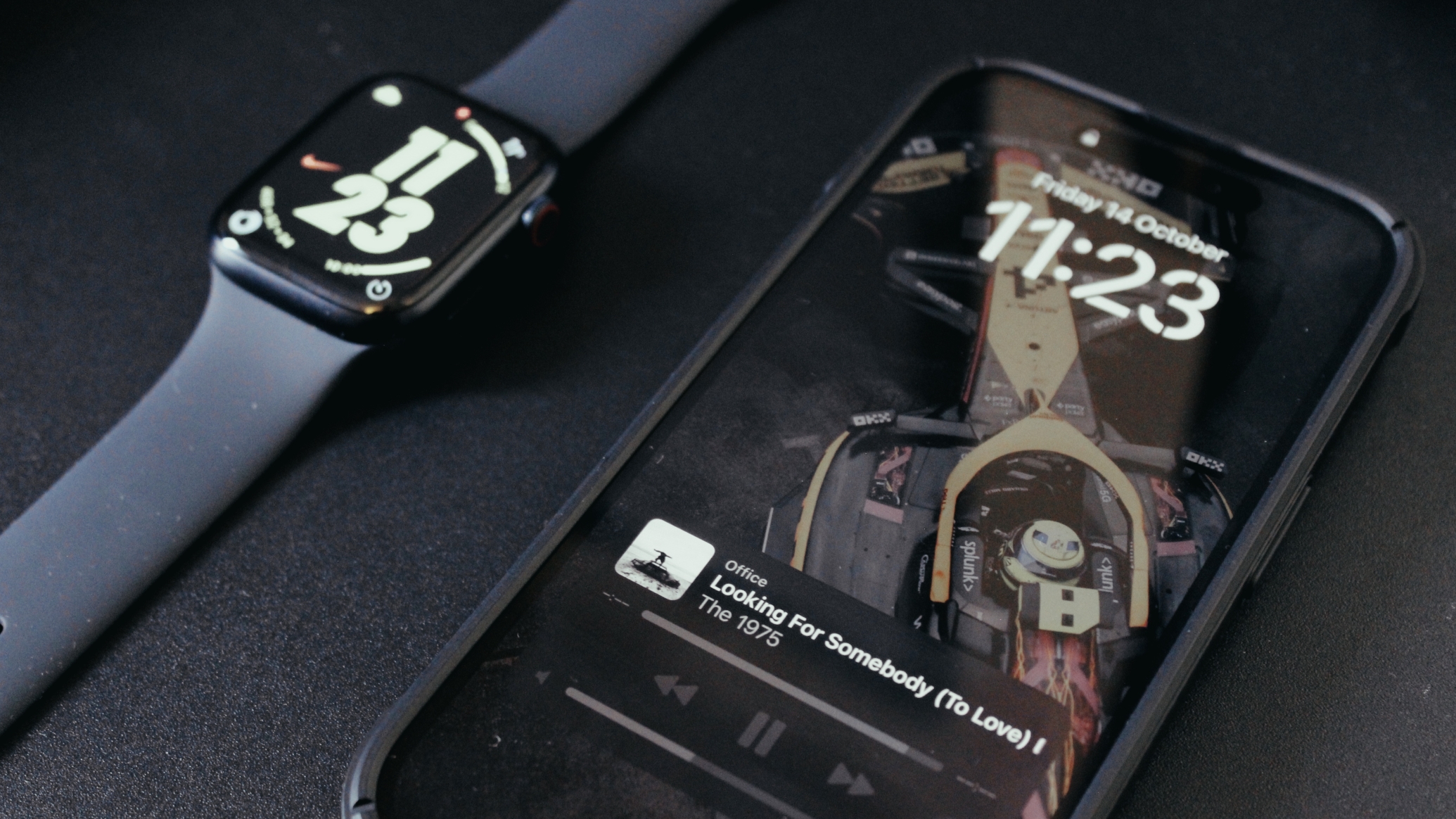
Samsung used to make its watches iOS compatible, but since it switched to Wear OS 3, the Galaxy Watch 4 and 5 are Android only. In fact, some of the watch's health sensor information is only available on a Samsung phone specifically — a shame for Android phone owners who prefer another brand.
But switching to Wear OS allowed Samsung to get access to the full suite of Google apps like Assistant, Wallet, Home, and Maps. That's a major perk, one that even diehard Apple fans will likely be jealous of. The Apple Watch will have all of its usual Apple app integrations you can rely on, at least.
WearOS and watchOS have many of the same third-party apps, so you can benefit from those regardless of which you choose.
Both Wear OS 3.5 and watchOS 9 added a QWERTY keyboard so you can delicately type up messages, instead of having to draw letters or tap stock response options when you receive a text. Stephen Warwick called the Apple keyboard "almost-usable," while I said that the Galaxy Watch 5 Pro keyboard has "just enough room that my careful hen-and-pecking or swiping from one key to the next works about 70% of the time." They're imprecise but functional in a pinch, in other words.
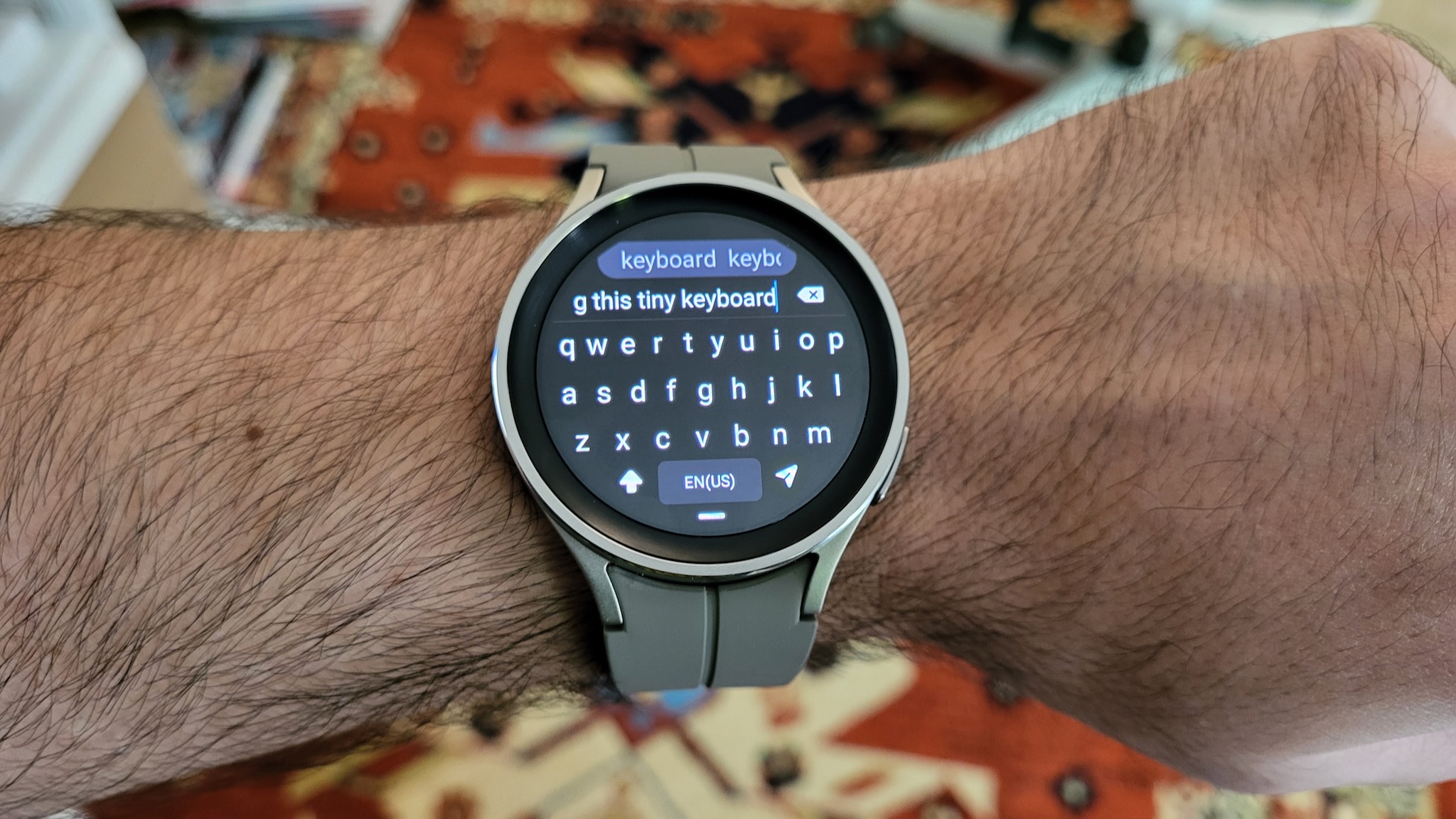
If watchOS 9 has one major advantage, it's in its fitness software. Apple has made that a major focus, adding custom workouts with which you can challenge yourself to maintain a specific pace, heart rate, effort level, or cadence. Even without Apple Fitness+, Apple gives you some useful fitness tools, even if they don't live up to a Garmin or Fitbit.
Apple also added some new safety features to the Series 8, such as an SOS function and crash detection.
Samsung, meanwhile, hasn't added many new tools to Samsung Health in recent years, and it doesn't have the benefit of the Pixel Watch's Fitbit integration. The Galaxy Watch 5 Pro's one upside is its exclusive option to install offline GPX maps so you can guide yourself on hiking trails or cycling routes even if you lose your cellular signal. It's a useful, but niche, tool.
Whichever ecosystem you prefer, Apple and Samsung both offer fast, substantial, and consistent software updates for their respective watches. The Galaxy Watch 5 Pro has four confirmed software updates planned, while the Apple Watch series typically gets four watchOS updates and about 4-5 years of security updates.
Samsung Galaxy Watch 5 Pro vs. Apple Watch Series 8: Which is better?
As always for these kinds of comparisons, it's easy to decide "which to buy" because you can only buy one or the other for the phone that you own. The only reason not to buy the Apple Watch Series 8 is if you want something more affordable (the Apple Watch SE) or more rugged and long-lasting (the Apple Watch Ultra). And the only reason not to buy the Galaxy Watch 5 Pro is if you prefer the more compact Galaxy Watch 5 even if you lose dozens of hours of battery life.
But if you simply want to know which is the better device, it depends on your values for a watch. Both will last you years for the software, but the Galaxy Watch 5 Pro has more durable materials and a battery that'll last even if the capacity dips over the years, while the Series 8 is more likely to build up knicks and require more charging over time. On the other hand, the Apple Watch Series 8 is undeniably the sleeker watch, while the Pro is more hardcore-looking. And it's hard to overlook the extra storage, which will make the Series 8 handier for various tasks.

Choose the Galaxy Watch 5 Pro for its multi-day battery, offline maps, Google Assistant support, large and bright display, and access to tons of great Play Store apps. Don't choose the Galaxy Watch 5 Pro if you want something lightweight or need robust fitness software.

Choose the Apple Watch Series 8 if you want a stylish everyday watch for both casual use and fitness, one that won't weigh down your wrist while still giving you a large display. Don't choose it if you want a watch that'll easily last you for a full day and night, or if you want something more rugged.
Be an expert in 5 minutes
Get the latest news from Android Central, your trusted companion in the world of Android

Michael is Android Central's resident expert on wearables and fitness. Before joining Android Central, he freelanced for years at Techradar, Wareable, Windows Central, and Digital Trends. Channeling his love of running, he established himself as an expert on fitness watches, testing and reviewing models from Garmin, Fitbit, Samsung, Apple, COROS, Polar, Amazfit, Suunto, and more.
